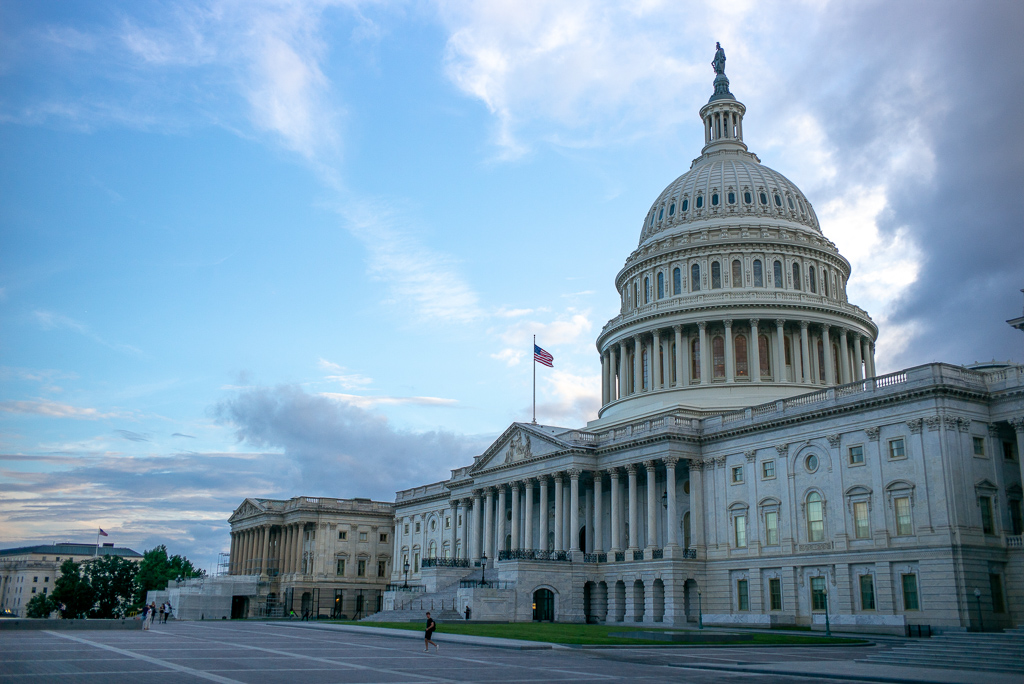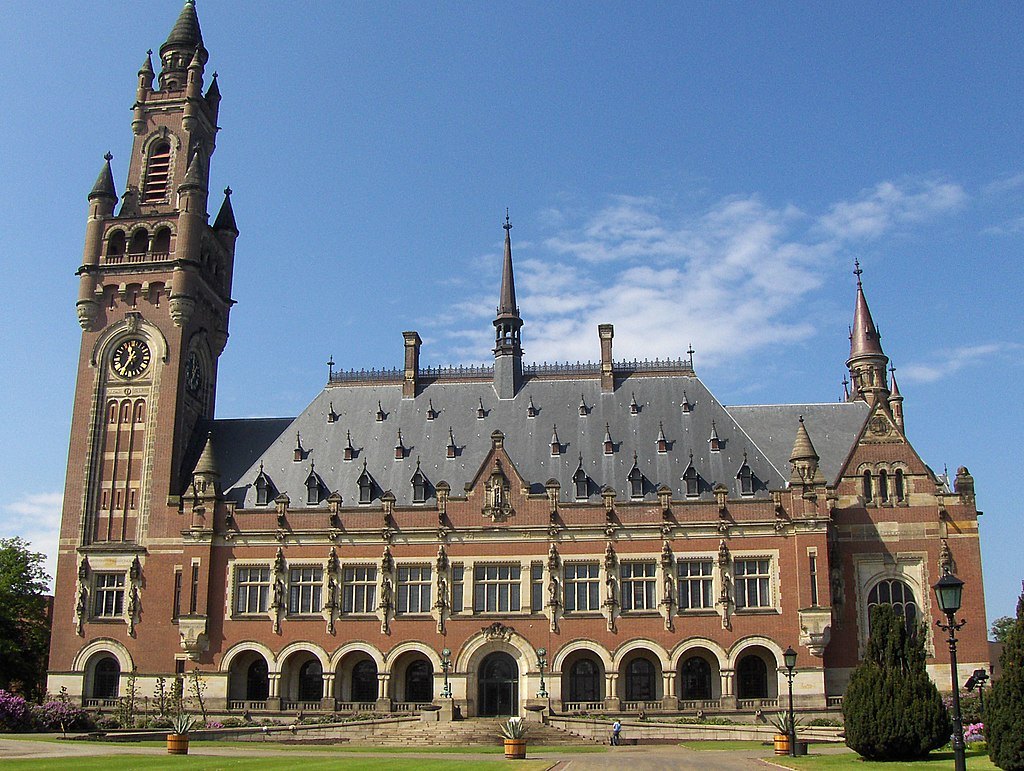Lifting of Treasury Sanctions on Deripaska Highlights Role for Congress in Foreign Affairs Decisions
On Dec. 19, the Trump administration notified Congress that in 30 days it would lift sanctions on several companies connected with sanctioned Russian oligarch Oleg Deripaska: aluminum giant Rusal and two related entities named EN+ and EuroSibEnergo (ESE). The relief comes after the companies agreed to reduce Deripaska’s ownership in the companies below 50 percent and make other organizational and governance changes to diminish Deripaska’s control.

Published by The Lawfare Institute
in Cooperation With

On Dec. 19, the Trump administration notified Congress that in 30 days it would lift sanctions on several companies connected with sanctioned Russian oligarch Oleg Deripaska: aluminum giant Rusal and two related entities named EN+ and EuroSibEnergo (ESE). The relief comes after the companies agreed to reduce Deripaska’s ownership in the companies below 50 percent and make other organizational and governance changes to diminish Deripaska’s control. Deripaska’s name is familiar in the context of the Trump-Russia scandals, and the lifting of sanctions on companies associated with him will, by definition, fuel suspicion about what is really motivating the administration’s action. But though some may be worried about a quid pro quo with Russia, the process by which sanctions were lifted actually tells a story of respect for the rule of law.
Oleg Deripaska is the billionaire member of Vladimir Putin’s inner circle whose business relationship with former Trump campaign chairman and convicted felon Paul Manafort went sour, with Manafort allegedly owing millions to Deripaska. The Washington Post reported that, as campaign chairman, Paul Manafort allegedly offered by email to provide Deripaska with “private briefings” about the 2016 presidential election—possibly in an attempt by Manafort to repay his debt to the Russian oligarch.
That email and thousands more were turned over to Special Counsel Robert Mueller as part of his investigation into Russia’s interference in the U.S.’s 2016 presidential election. A video of a CNN reporter chasing down Deripaska in 2017 to ask about Manafort resulted in two memorable English-language comments from Deripaska: “Fake news” and, “get lost please, thank you.”
But there are legitimate reasons why the administration might want to lift sanctions separate from the Russia investigation. The original designation of Rusal in April of 2018 caused a major international stir because of concerns about the projected economic impact in the aluminum industry. Wednesday’s action cures those concerns. On April 6, 2018, the Treasury Department’s Office of Foreign Assets Control (OFAC) designated Deripaska pursuant to Executive Orders 13661 and 13662, and issued a statement outlining his various bad activities. It is standard practice to designate for sanctions entities owned or controlled by sanctioned individuals, and OFAC also designated EN+ for being “owned or controlled” by Deripaska, Rusal for being “owned or controlled” by EN+ and ESE for being owned or controlled by EN+ and Deripaska. A general license provided 30 days for businesses to wind down their relationships with these entities.
Germany, France and other U.S. allies, as well as several large multinational and U.S. companies, warned the administration that taking Rusal out of the international aluminum market through sanctions would have unintended consequences for aluminum supply chains around the world. Rusal is the largest producer of aluminum outside of China, and its sanctioning could disrupt production of all sorts of goods like cars, planes, aluminum cans, and aluminum foil. In response, OFAC extended the 30-day wind-down period to six months, and then extended it further periodically through the fall as the parties sought to reach agreement about how to distance Deripaska from these companies. So businesses were never actually required to cut ties to Rusal—and now they need not do so because the sanctions will be lifted unless Congress acts to stop the action.
So will Congress act? The reactions on Capitol Hill to the administration’s actions have been mixed. In a classic move designed to blunt criticism of controversial de-designation actions, the Trump administration sought to manage negative reactions by also announcing on Dec. 19 that it would impose a new raft of Russia sanctions, including some related to the notorious Internet Research Agency and the Russian military intelligence service responsible for hacking the Democratic National Committee during the 2016 election. The deal OFAC struck with Rusal and EN+ failed to measure up to the high bar set in a Dec. 5 letter to Treasury Secretary Steve Mnuchin from Senate Foreign Relations Committee Ranking Member Bob Menendez, and other Democrats had expressed opposition to removing sanctions as well. Notably, Senate intelligence committee leaders Sens. Richard Burr and Mark Warner issued a measured joint statement focused on the importance of enforcement of the terms of the delisting: “[T]his deal will require constant monitoring to ensure that neither Deripaska nor the Russian government violate the terms of the agreement.” (There is an outstanding question of whether it is possible to monitor Deripaska’s involvement in these entities in any truly meaningful way.)
Notably, this action is the first time the administration is terminating sanctions on entities subject to the reporting-and-waiting requirements Section 216 of Title II of the Countering America’s Adversaries Through Sanctions Act (CAATSA). That bill passed the Senate 98-2 and the House 419-2 in July 2017, based in part on concerns that the Trump Administration might precipitously reverse sanctions on Russia. President Trump signed the bill reluctantly, only when it became clear that a veto would almost certainly have been overridden by Congress. Among other things, the law provides that sanctions imposed under certain Russia-related executive orders and laws can be terminated by the president only if (1) the president “submit[s] to the appropriate congressional committees and leadership a report that describes the proposed action and the reasons for that action,” and (2) a 30-day congressional review period passes with no enactment of an expedited joint resolution of disapproval of the president’s proposed action. If no such resolution is enacted, then the president is free to lift the sanctions outlined in the report.
While the Treasury Department does not specifically reference CAATSA in its letter to members of Congress, the letter includes specific words from the statute—“Treasury also assesses that this action … is not intended to significantly alter U.S. foreign policy”—that put the report squarely within the review framework of Section 216. Under the legislation, the Senate Banking, Housing, and Urban Affairs and the House Committee on Financial Service could take action during the 30-day review period to “as appropriate, hold hearings and briefings and otherwise obtain information in order to fully review the report.” In reality, public hearings are almost certainly not going to happen, and the chance of a joint resolution of disapproval being enacted seems remote based on the muted reaction to the de-designation thus far.
Regardless of the merits or motivations for the lifting of these sanctions or the prospects for congressional disapproval, the fact that the Trump administration submitted a lengthy explanatory report as required by the law and indicated it intends to respect the 30-day waiting period shows that the administration is honoring the mechanisms laid out in the law and respecting, to some extent, the role Congress laid out for itself in that law. The fact that Congress is involved at all in a decision on Russia sanctions in the Trump administration underscores that Congress can and should assert itself as a co-equal branch on foreign policy issues when needed. At the very least, the procedures Congress laid out in CAATSA for reviewing proposals to lift sanctions related to Russia will force the administration to explain and justify its actions to members of Congress—and, in the process, to the American people.





